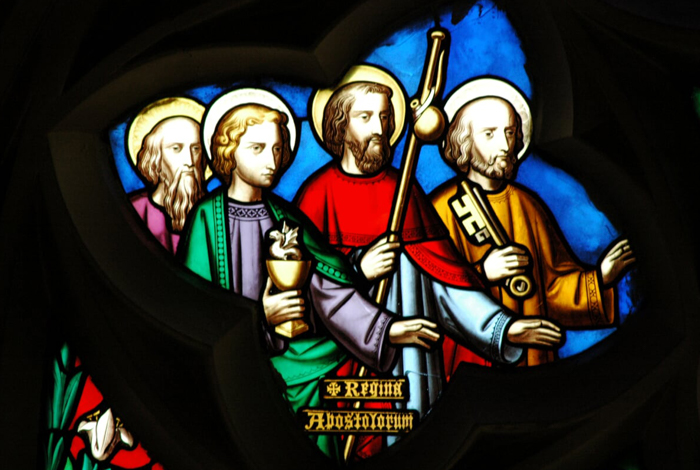
Sacrament Of the Sick
A clear distinction is made in the “new” Order for the Care of the Sick (issued by Pope Paul VI in 1972) between those who are seriously ill and those who are dying. Extreme Unction or Last Rites as it used to be called is now more fittingly called the Anointing of the Sick (or Sacrament of the Sick), for the sacrament is to be given to those who are seriously ill or sick but certainly not to those who are dead.
The effect of the Sacrament is summarised in the Introduction to the Rite:
“The sacrament provides the sick person with the grace of the Holy Spirit by which the whole man is brought to health, trust in God is encouraged, and strength is given to resist the temptations of the Evil One and anxiety about death. Thus the sick person is able, not only to bear his suffering bravely, but also to fight against it. A return to physical health may even follow the reception of this sacrament if it would be beneficial to the sick person’s salvation.”
Who may be anointed?
The rite states that “there should be special care and concern that those who are seriously ill due to sickness or old age receive this sacrament”.
Anointing is not a magic remedy. A person should, as far as possible, be able to take part in the celebration consciously and actively. It is a misuse of the sacrament to “put it off” until the person is very seriously ill.
Old people may be anointed if they are in a weak condition, even though no dangerous illness is present. It is not a question of anointing people who have reached a certain age. It is not simply a question of years, but of the debility that goes with age, and this varies from person to person. The Church stresses, however, that all who receive this sacrament appreciate that it is not given to prepare them for death. It is given that they might have strength to overcome their condition.
Those who are dying and are able to receive Holy Communion are given Viaticum, literally meaning Holy Communion given ‘for a journey’.
The dead should not be anointed. Instead the priest is asked to pray for the dead person, asking that God forgives his/her sins and graciously welcomes him/her into his kingdom. And so, while the priest will not anoint the person who has died, he would certainly want to be called upon - day or night - and would want to join with those who are present in praying for the person who has died.
Admission to Hospital
Surgery - even very common or ‘routine’ surgery is always to be taken seriously. Anyone who is given an appointment for admission to hospital for surgery under anaesthetic should contact their local priest and ask to receive the Sacrament of the Sick before admission, as currently there is usually only a short time between admission and surgery. (It may also be useful to inform the hospital chaplain in advance.)
Anyone admitted to hospital unexpectedly (and kept in) is probably sufficiently ill to merit receiving the Sacrament of the Sick as a spiritual aid in their illness. Every hospital has a system for contacting the R.C. Chaplain urgently in emergencies. This is activated by the patient or family asking the nursing staff clearly to summon the Catholic Chaplain.
The same system may be also used to request a visit from the R.C. Chaplain but the nurse should be asked to make it clear to the priest that it is not urgent.
Because of the way confidentiality rules are interpreted in most hospitals today, the Catholic Chaplain is usually not informed of the admission of any Catholics, except as above, so the form below may be used to achieve this.
PATIENT’S RELIGIOUS DECLARATION
I am a Roman Catholic.
While in hospital, I wish to exercise my human right, as enshrined in the European Convention on Human Rights (Article 9) of practising my Religion.
I request that the Roman Catholic Chaplain be informed of my admission to hospital, and that that I receive a visit from the Roman Catholic Chaplain.
I give explicit consent for this information to be made available to the Roman Catholic Chaplain and I would request that this document form part of my personal case notes.
Signed…………………………………………………………….
IF SOMEONE IS SERIOUSLY ILL, AND WISHES to receive the Sacrament of the sic. Please contact the parish priest.
To download this form click here.
For further information Email: This email address is being protected from spambots. You need JavaScript enabled to view it.

